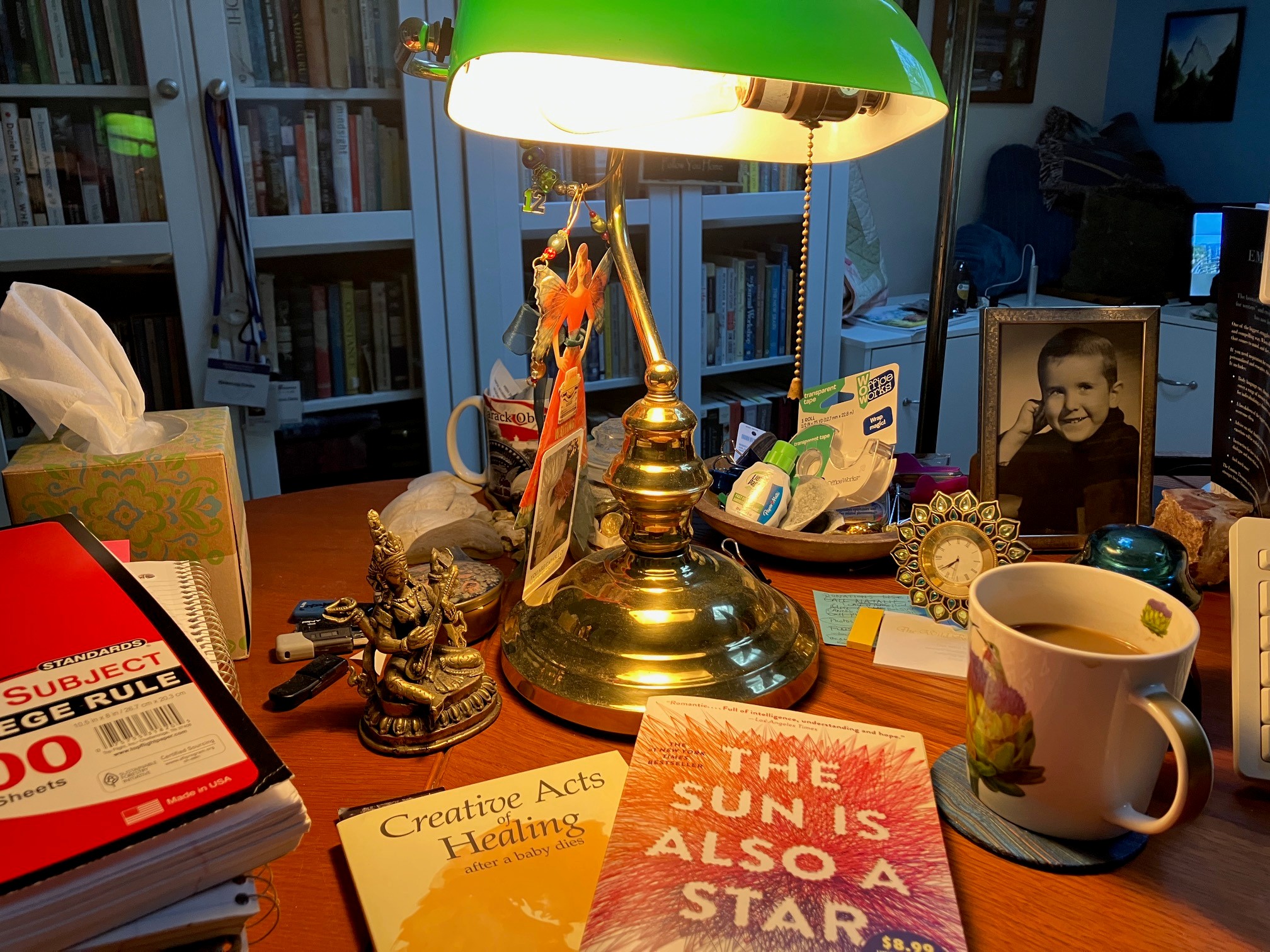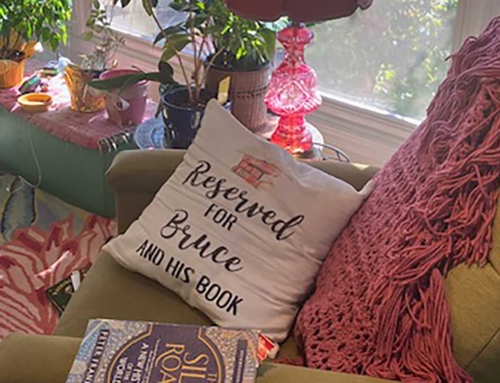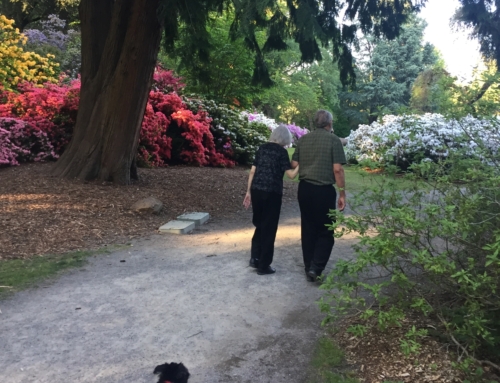One of the reasons I recently decided to read more books, especially novels, was the study-supported assertion that “fiction provides “a workout in emotional intelligence.” It supposedly rewires the brain to “increase empathy and social cognition.” I thought of that claim as I sat down to read the two books I chose for the month of October—The Sun is Also a Star by Nicola Yoon, and Creative Acts of Healing After a Baby Dies by Judith van Praag.
The Books
The Sun is Also a Star is a novel for teens. I chose it because I’m finishing up my own young adult novel, and I wanted to see what sorts of stories had staying power in the stacks at Barnes and Noble. Though it came out in 2015, Yoon’s book seems very timely in the current hurricane of ICE raids. It allows readers to imagine their way into a very specific, compelling experience: What would you do if you fell in love on the very day you were scheduled to be deported? I defy anyone not to empathize with Natasha. Another wonderful thing about Yoon’s novel is the way it deploys snippets of science and philosophy to highlight the many unseen threads that connect us—across cultures, across miles, across our different beliefs. She shows how every second of every day matters. Every choice matters.
Creative Acts of Healing is memoir rather than fiction, a personal narrative thrust into my unwilling hands at a conference. I’m a childless cat lady currently between cats, and a heart-rending account of how a mother feels when her baby dies in childbirth was the last thing I wanted to read. But I took the gift and opened it—and got instantly hooked by its vivid, visceral opening, and the narrator’s candid, courageous voice. Her healing-promoting efforts swirl through a variety of forms—prose and poetry, painting and sculpture, set design and quilting. The story moves from Amsterdam to Texas hill country to Seattle, providing intimate glimpses of three arts communities.
Their Effect
As I read both books, I kept coming across sentences that made me stop, think, and journal. At the end of Creative Acts of Healing, the narrator remarks, “I learned that you can help people by actively listening [and] asking a difficult question sometimes.” It occurred to me that I rarely ask difficult questions. I fear difficult answers, complex stories that stray outside my comfort zone. Stories that might require a response I don’t know how to give. Yet I loved reading these books. I found myself surprisingly open to the unfamiliar territory—in fact, I enjoyed it.
Resolved: Risk more. Read more.



